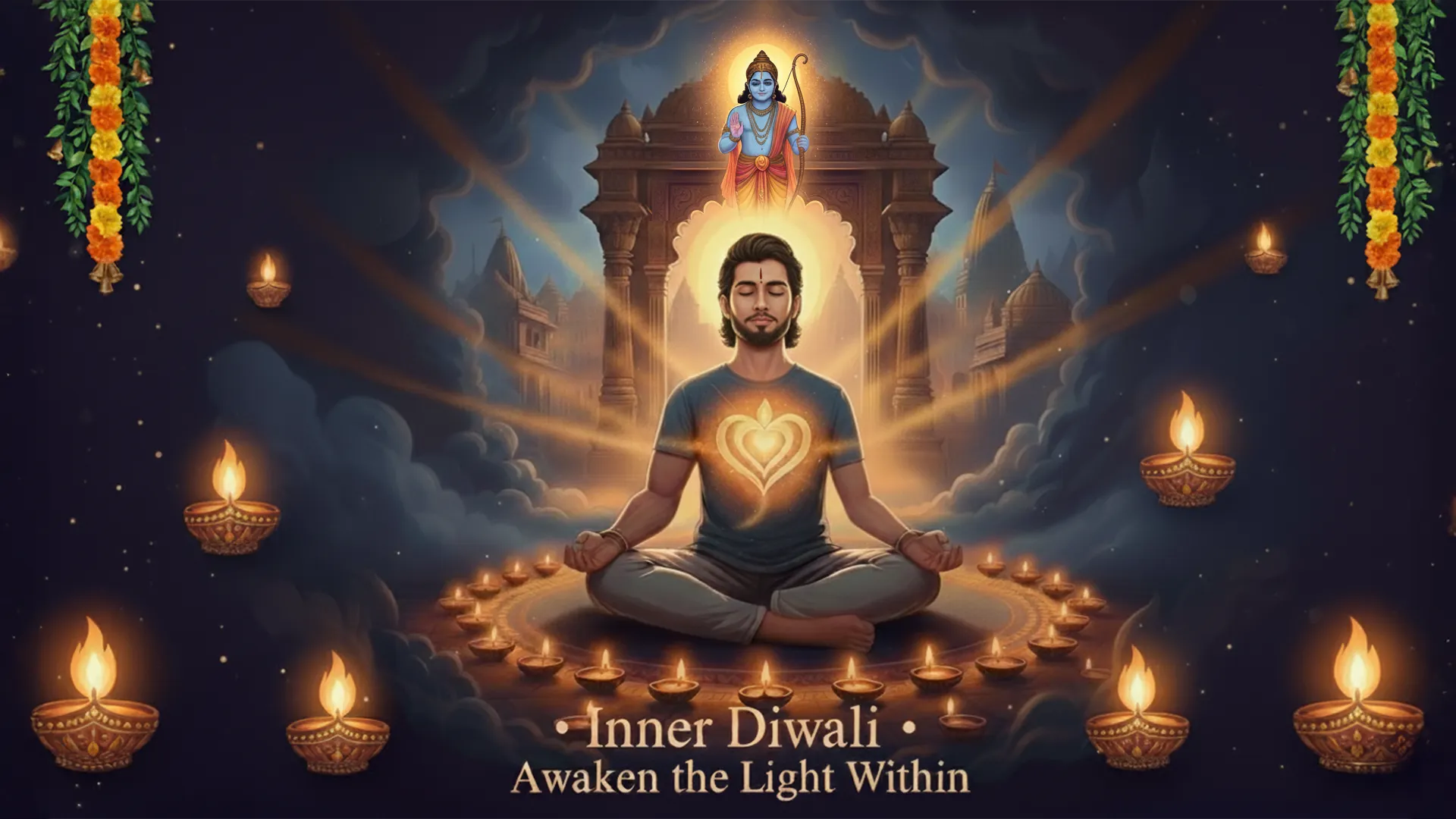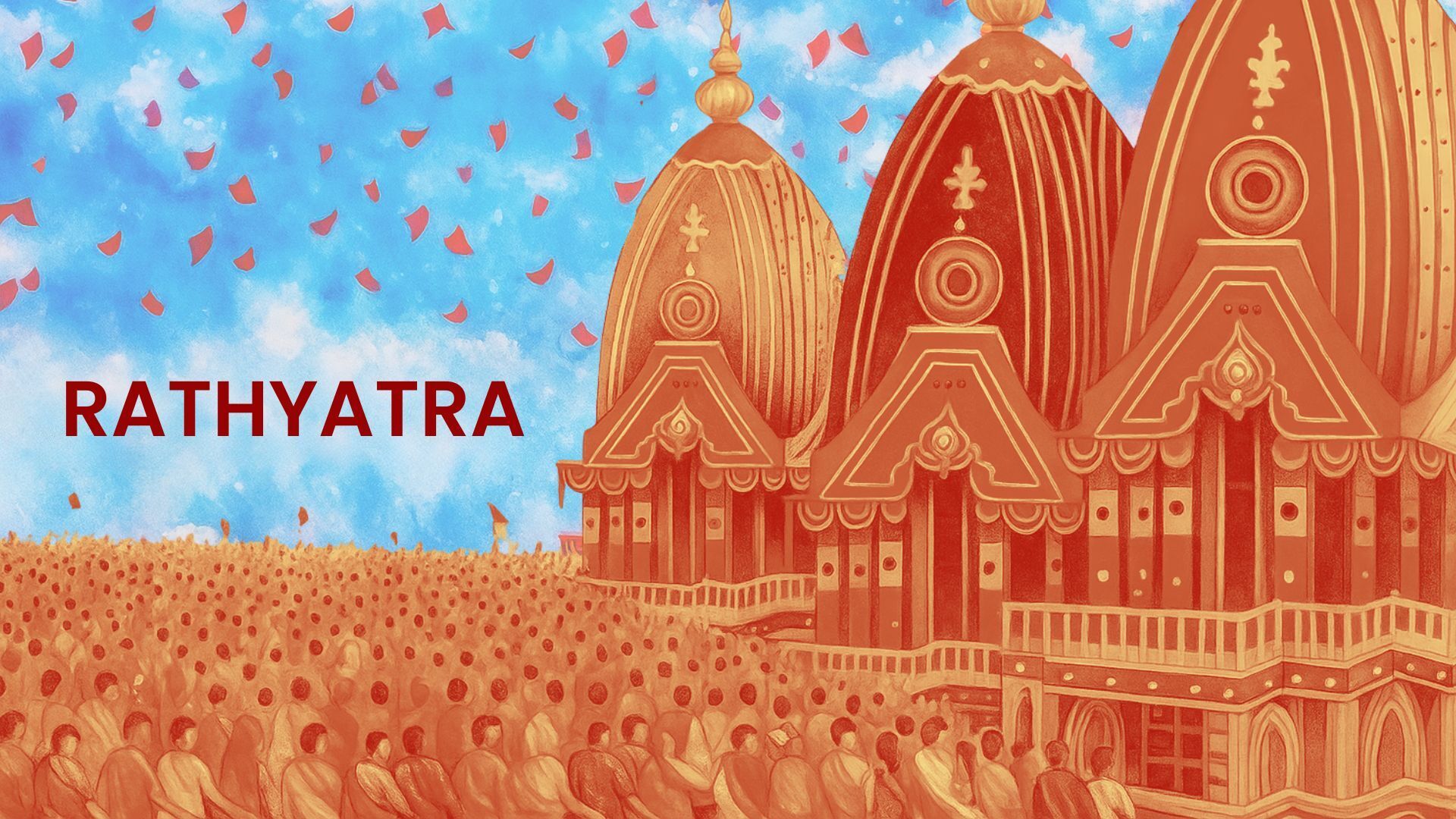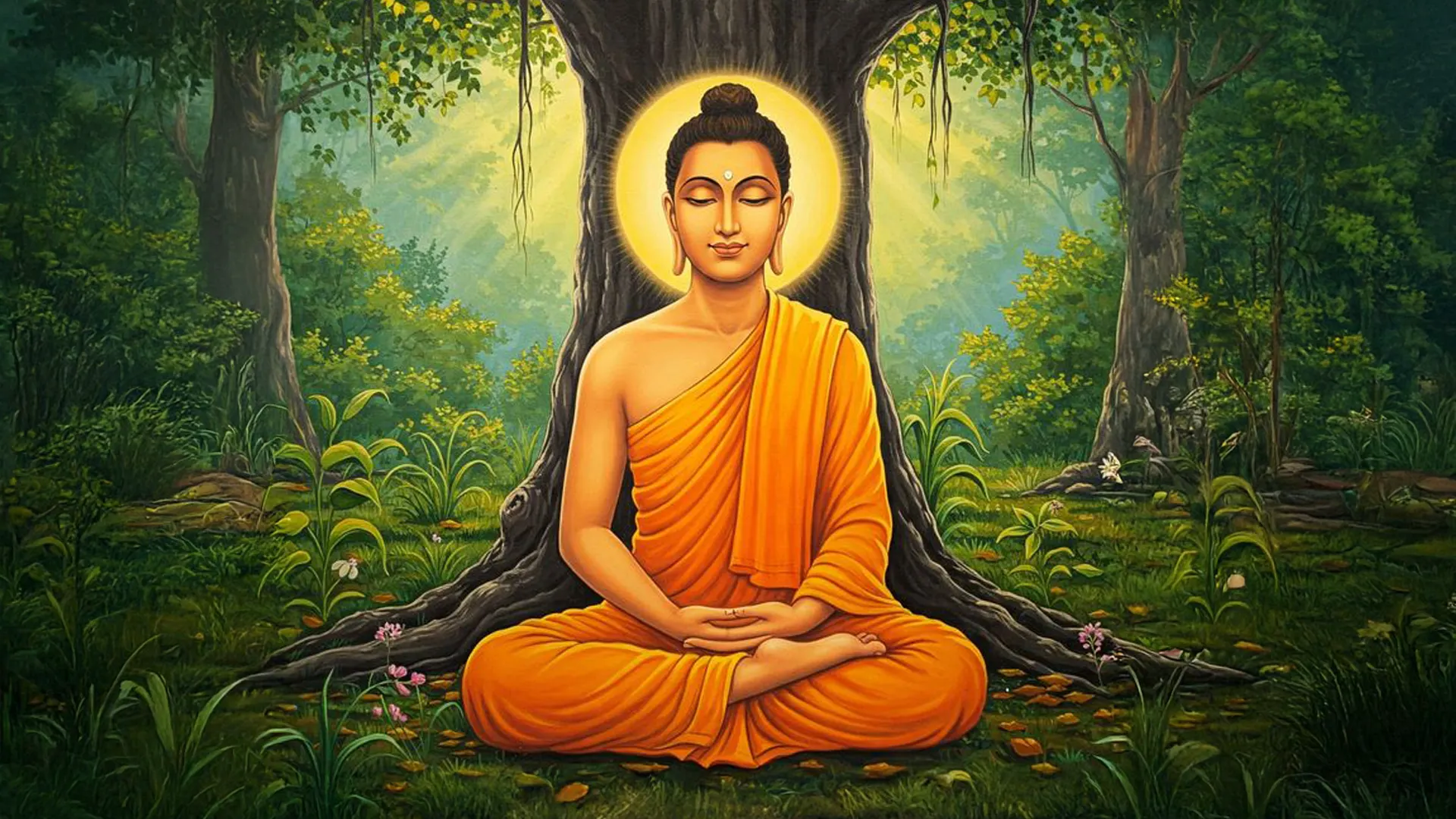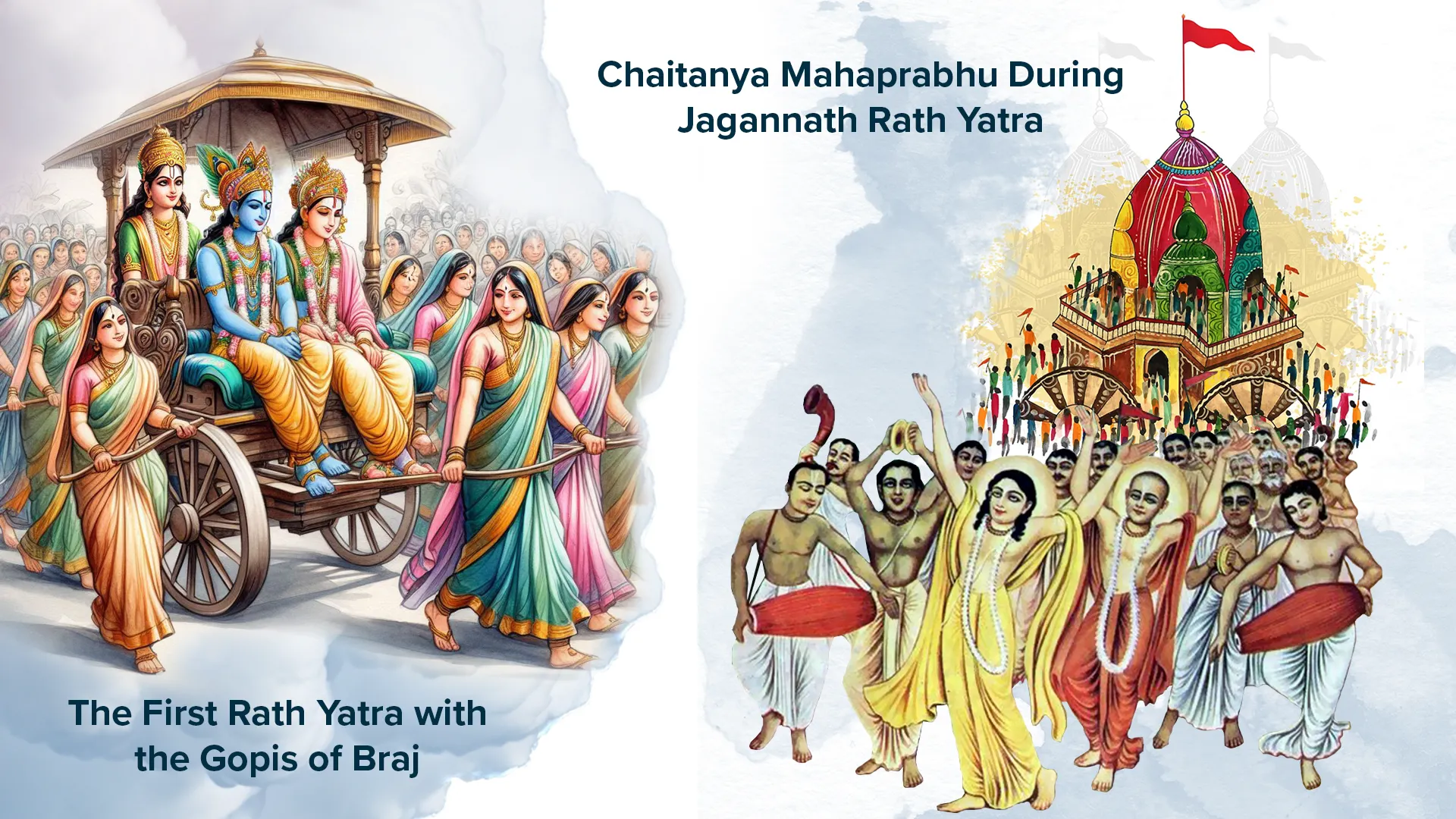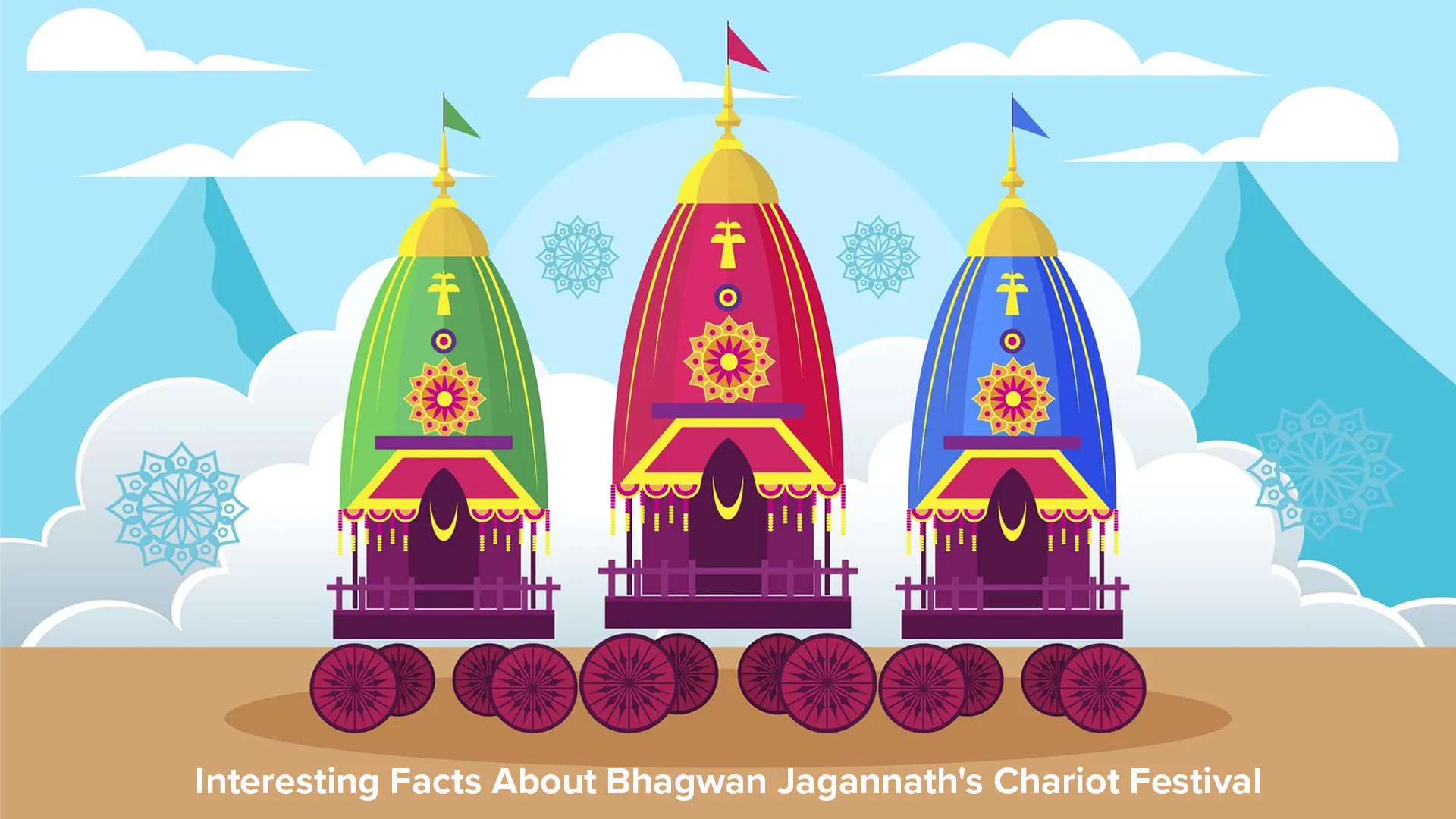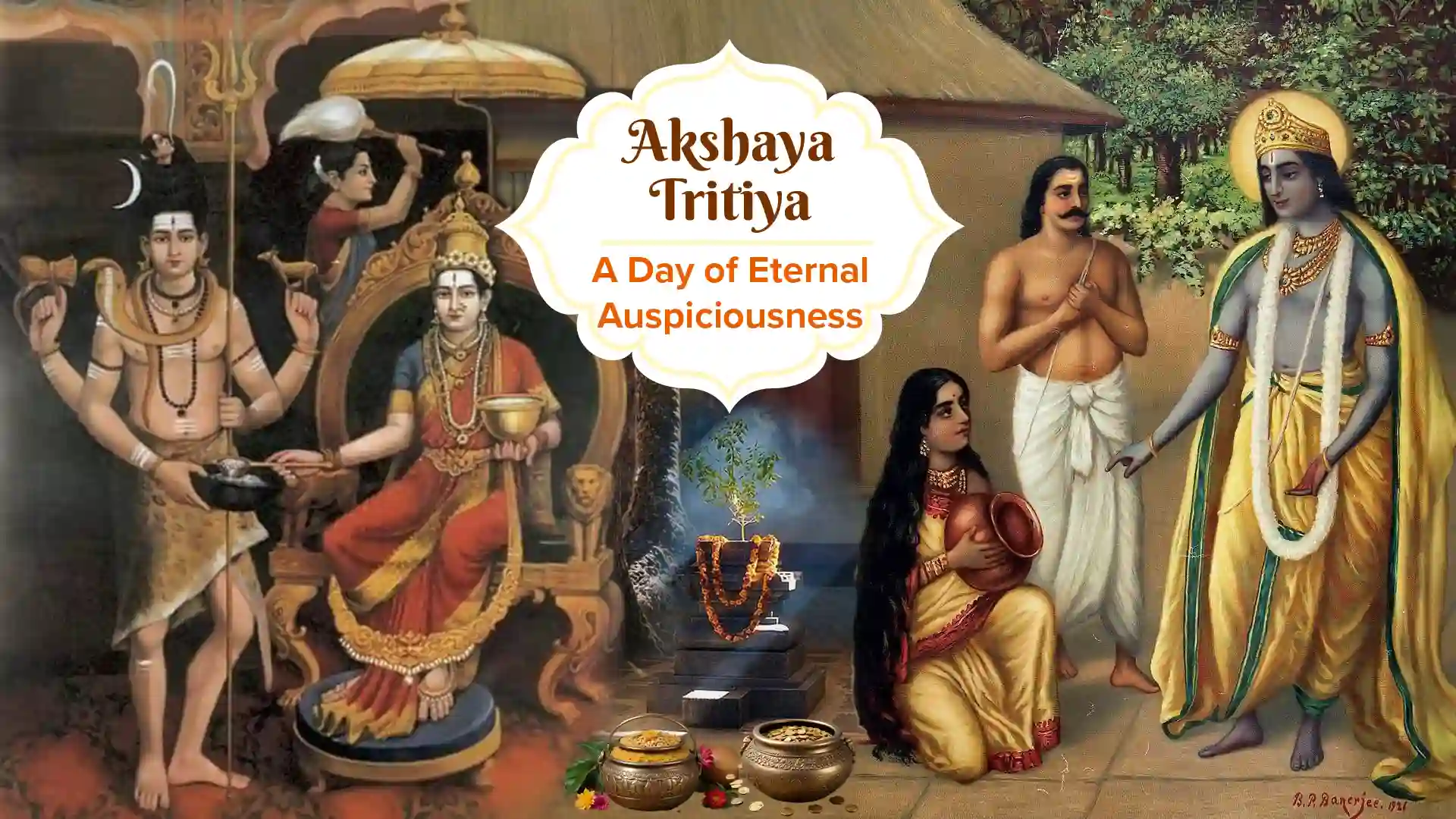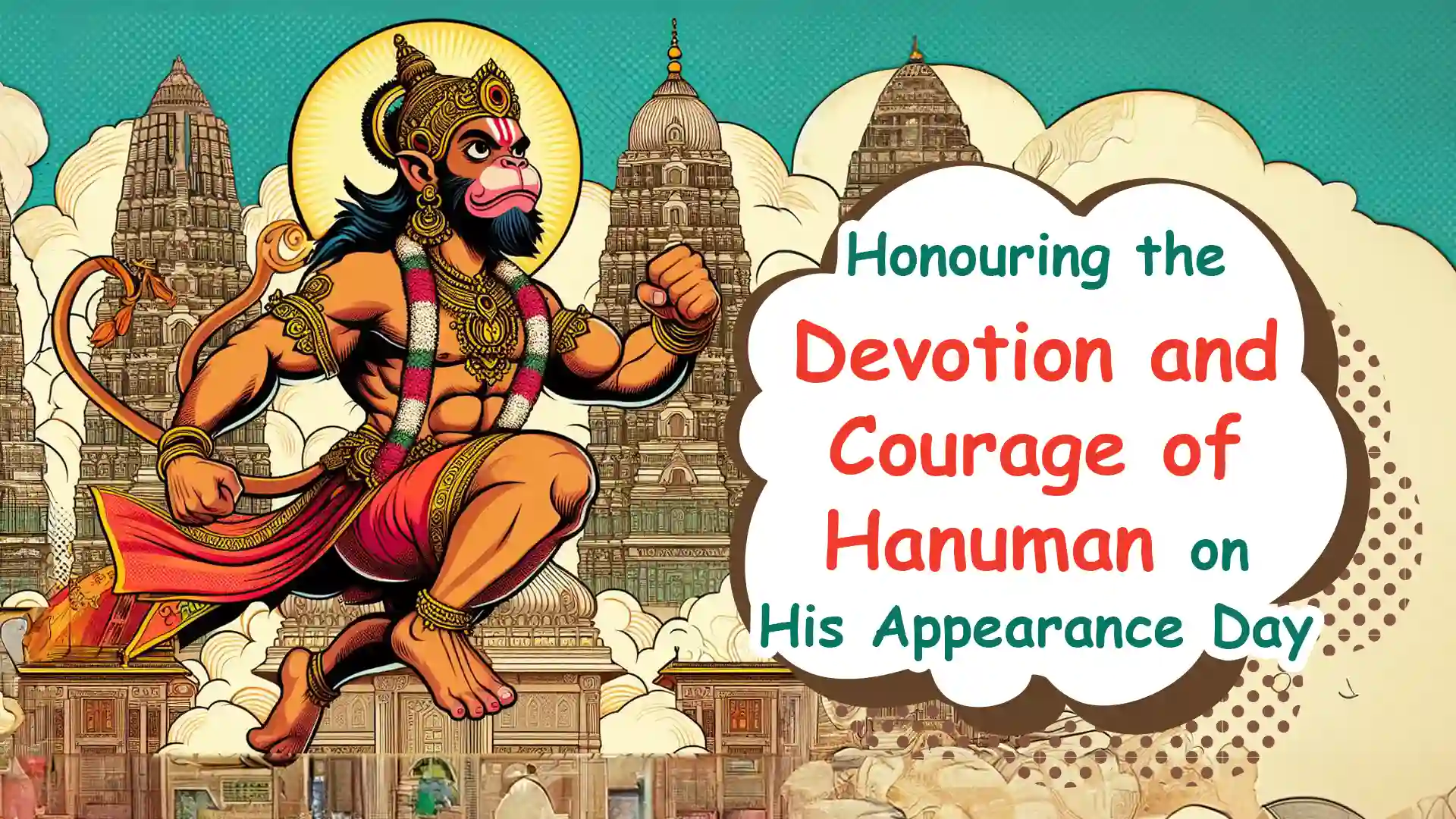Diwali, the Festival of Lights, is a time of immense joy, celebrated across the world with the exchange of sweets, dazzling fireworks, and brilliant rows of lamps lighting up neighbourhoods. Swami Mukundananda reminds us that Diwali is more than a cultural festival: it is a profound opportunity for spiritual transformation. The fireworks offer temporary joy, yet the true essence of Diwali lies in overcoming our inner darkness and achieving lasting spiritual growth.
In today's world, many reach the pinnacle of material success only to find their hearts feeling empty. This emptiness arises from neglecting to illuminate the core of our being – our ethereal heart. Therefore, Diwali is an important annual reminder to shift our focus from the external, transient world to the eternal, divine source of happiness. Reflecting the universal philosophy of the Vedas, Swami Mukundananda emphasises, "Real happiness will never come from the external world; it is experienced when you connect yourself with God." This blog draws inspiration from his teachings, guiding us to ignite inner illumination and celebrate the true essence of Diwali within.
Spiritual Essence of Diwali – Inner Illumination
Diwali is a shortened form of the Sanskrit word "Deepavali," which means "row of lamps." This festival is not merely a celebration; it also serves as a guide to achieving inner illumination. Swamiji points out that while the physical lamps we light are beautiful, they are reminders of a deeper purpose. The true goal is to ignite the inner flames that symbolise the three essential pillars of a spiritual life: Knowledge, Devotion (Bhakti), and Selfless Giving (Seva).
Spiritual Knowledge (Gyan) is the powerful force that can dispel the darkness of ignorance. This wisdom provides a crucial blueprint for living consciously. It must then passionately fuel Devotion (Bhakti), a process that transforms our scattered material love—our attachment to worldly things—and redirects it entirely toward the Divine. This sacred love naturally leads to Selfless Giving (Seva), which makes us channels of divine compassion and blessings to the world.
This synthesis—Knowledge leading to Devotion, which expresses itself through Service—is the essence of a truly meaningful Diwali. Without this spiritual foundation, Diwali remains a holiday of transient enjoyment. With it, the festival becomes a powerful catalyst for our eternal upliftment.
Spiritual Cleaning: Purifying the Soul’s Home
The tradition of deep cleaning, repairing, and purifying our homes before Diwali also holds significant psychological and spiritual meaning. Swami Mukundananda emphasises that this symbolic act should also be applied to the "home of our soul," which requires ongoing spiritual maintenance, not just a yearly clean-up. This inner grime is made up of Sanskars (subtle impressions) that dictate our habits and behavioural patterns.
We must meticulously remove the inner clutter of negative tendencies, which accumulate like emotional dust:
- Ego and Pride: We need to eliminate the belief that we are the sole doers, as this mindset is the root of much self-created suffering and conflict. The ego leads us to demand respect, resist correction, and fear vulnerability. To overcome this, we must cultivate humility and recognise that all our talents and successes are gifts from the Divine.
- Attachment and Greed: Letting go of excessive attachment to possessions, people, and status is essential, as it keeps us trapped in a cycle of desire and disappointment. When we cling to things, any change often leads to significant pain. This process of inner cleansing involves practising non-attachment and recognising that change is an inherent part of life.
- Anger and Jealousy: Letting go of grudges and toxic resentments is essential for maintaining our mental peace and allowing divine grace to flow. These negative emotions often stem from feelings of personal inadequacy or the expectation that the world should meet our demands. Letting go involves the conscious practice of forgiveness and cultivating contentment.
The external ritual of cleaning during Diwali encourages us to take on the challenging yet rewarding task of purifying our hearts. Let us use this occasion to reflect on whether our hearts are serene, spacious sanctuaries for the Divine to dwell in.
The Journey from Darkness to Light: The Soul’s Allegory
The traditional celebration of Bhagwan Ram’s victorious return to Ayodhya symbolises the triumph of light over darkness. This event is not just a historical moment; it serves as a profound allegory for our own spiritual journeys. Swamiji allegorically describes Ayodhya as our hearts, where Bhagwan Ram is supposed to reside. However, we have exiled Him from our consciousness, which is why we are living a purposeless life filled with darkness. Diwali is the time to install the Supreme God back in our hearts.
Ayodhya represents our hearts, which should be beautiful and vibrant, ruled by Divine Love and peace. Unfortunately, due to unchecked attachment and spiritual misguidance, we have, in effect, exiled the Supreme Divine (Ram) by continually prioritising the fleeting distractions of the material world.
Darkness we seek to dispel from our hearts is Maya or Ignorance. It creates the illusion that our ultimate fulfilment lies in the material realm—in fleeting possessions, changing social status, and temporary external relationships. This cosmic deception, driven by the three gunas (modes of material nature), binds the soul in endless cycles of temporary pleasure and subsequent suffering. Consequently, our consciousness becomes trapped in a continual state of desire, distress, and dissatisfaction, leading to a lingering emptiness that we often try to mask with purposeless activities.
The light (diyas) that celebrate Ram's homecoming symbolise Bhakti – unconditional love for God.
Diwali is, therefore, a sacred time to turn our consciousness towards the Divine and invite Bhagwan Ram to reside in the core of our being.
Daily lighting of Diyas (lamps): A Blueprint for Spiritual Illumination
To ensure that the illumination we experience during Diwali sustains throughout the entire year, Swamiji recommends lighting Five Inner Diyas as part of a cohesive daily spiritual practice (Sadhana). These five principles provide a comprehensive framework for inner development, with each principle reinforcing the others:
- Discipline (Tapas): This is the foundation of consistency and commitment. It involves creating a non-negotiable routine, whether through prayer, chanting, or meditation, at a specific time and place. Swamiji emphasises that consistent practice, even in tiny amounts, is much more crucial than erratic bursts of intensity. Over time, this steady approach helps to develop the spiritual strength needed for long-term perseverance. Discipline plays a key role in managing the mind and senses, preventing them from leading us astray.
- Devotion (Bhakti): This is an attitude characterised by love, gratitude, and surrender. It involves cultivating a constant remembrance of God (Smaran) by engaging lovingly in spiritual practices. True Bhakti goes beyond the confines of a temple; it represents a continuous shift in perspective that transforms all our daily activities into acts of worship. This unbroken, loving connection purifies the mind more effectively than any other practice.
- Detachment: Often misunderstood as apathy or coldness, detachment is high spiritual wisdom. It involves enjoying life’s material blessings and fulfilling all worldly responsibilities while recognising their temporary and impermanent nature. By dedicating the fruits of our actions to God and not clinging to the results, we can liberate ourselves from the cycle of harmful emotional dependency and subsequent suffering. This understanding allows us to remain steady in both pleasure and pain.
- Knowledge (Gyan): This Diya encourages active study and reflection on the profound and timeless wisdom found in the Vedic scriptures, especially the Bhagavad Gita. Engaging in this study, often under the guidance of a Guru and in the uplifting company of fellow devotees (Satsang), provides intellectual clarity. It helps us comprehend our eternal soul nature, the nature of God, and the ultimate purpose of life, thereby addressing the root cause of all suffering—spiritual ignorance.
- Service (Seva): This Diya symbolises the external expression of our inner light. It reminds us that true happiness is a meaningful result of giving. By cultivating a spirit of selfless contribution and engaging in acts of charity and service to others, we can purify our hearts and diminish our ego. Swamiji often uses the analogy: "Be a river, not a reservoir." When we share our blessings with others, our own spiritual resources will never deplete. By recognising the divine in all beings, we allow our inner light of compassion to shine brightly, benefiting the entire world.
Bhagwan Ram and the characters in the Ram Leela are not just historical figures; they are a practical demonstration of these spiritual principles. For instance, Bhagwan Ram himself exemplified Detachment and Dharma by willingly giving up the kingdom to fulfil his father's word. Mother Sita represents perfect, unwavering Devotion (Bhakti), while Lakshman embodied intense Discipline (Tapas) in his selfless service. The character of Hanuman stands as the supreme example of unconditional Service (Seva) powered by pure love for the Divine. Swamiji encourages us not just to rejoice in Ram's return to Ayodhya, but to study each character in the Ram Leela deeply. The true, lasting celebration happens when we absorb the wisdom from Ram Leela and incorporate it into our lives.
In conclusion, let the vibrant festival of Diwali remind you to strengthen your commitment to inner illumination. Let the rows of physical lamps inspire you to ignite and nurture the Five Inner Diyas daily: Discipline, Devotion, Detachment, Knowledge, and Service. This cohesive spiritual blueprint, your personalised Sadhana, ensures that the joy of the festivities sustains you through every challenge ahead. Embrace this journey of consistent self-purification and invite the Divine fully back into the sanctuary of your heart, making every day an inner Diwali.
Call-To-Action: The real celebration lasts a lifetime. Ready to Sustain Your Inner Light? Which of the Five Inner Diyas will you light first on your path to lasting joy?
If we could transform ourselves just 1% every day, after a few months, we would have changed ourselves 100% percent. – Swami Mukundananda
Here are some resources to help you get started:

